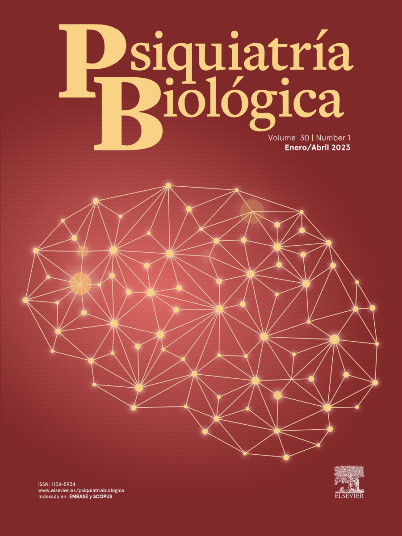Las alteraciones cognitivas son comunes en el contexto del trastorno depresivo mayor. En la actualidad, existe una creciente evidencia que demuestra que la presencia de estas alteraciones no sólo se limita al episodio depresivo agudo o activo, sino que transciende y persiste de forma significativa tras la remisión de la sintomatología depresiva en un porcentaje importante de pacientes que han sufrido depresión. El objetivo de este trabajo es revisar la literatura que ha abordado este aspecto con el fin de definir el perfil y patrón sintomático de las disfunciones cognitivas en la depresión en remisión y establecer su repercusión clínica y funcional. Distintos estudios han evaluado la alteración del funcionamiento cognitivo tras la remisión y han objetivado alteraciones de distintos dominios cognitivos; entre ellos destacan las alteraciones en la atención, la memoria y las funciones ejecutivas como los más relevantes. La presencia de estas alteraciones están relacionadas con un impacto significativo en el rendimiento funcional del paciente, así como en la calidad de vida del mismo e incrementa el riesgo de nuevas recaídas depresivas. Es necesario incrementar los esfuerzos en aras de evaluar de forma adecuada la presencia de estas alteraciones en los pacientes que hayan padecido un cuadro depresivo y el desarrollo de estrategias adecuadas para su abordaje terapéutico efectivo.
Cognitive impairments are common in the context of major depressive disorder. Nowadays, there is growing evidence confirming that these alterations are present not only during acute or active depressive episodes, but that they persist for some time after significant remission of depressive symptoms in a substantial percentage of patients who have suffered from this disorder.
This study reviews the literature that has addressed this issue with a view to defining the profile and pattern of cognitive dysfunction in remitted depression and establishing its clinical and functional impact. Various studies have assessed impaired cognitive functioning after remission and have demonstrated alterations in distinct cognitive domains; the most important of these alterations involve dysfunctions in attention, memory and executive function.
The presence of these alterations significantly affects the patient’s functional performance and quality of life and increases the risk of further depressive relapses. There is a need for increased efforts to adequately assess the presence of these alterations in patients who have had depressive symptoms and to develop appropriate therapeutic strategies for their effective management.
Artículo
Comprando el artículo el PDF del mismo podrá ser descargado
Precio 19,34 €
Comprar ahora






